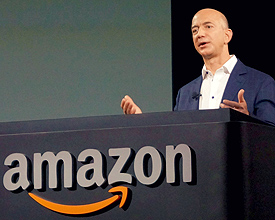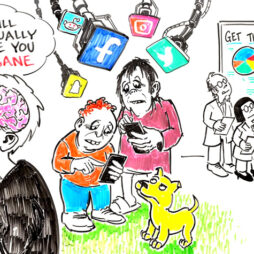 Chris Banescu –
Chris Banescu –
Jeff Bezos, the founder and current CEO of Amazon.com, offers ten maxims that have helped him turn Amazon into the world-class company it is today. Leaders should consider these important principles if they want to insure the long-term success of their businesses. The list was compiled by George Anders, Forbes contributor who writes about management, careers and unforgettable personalities. This story appeared in the April 23, 2012 issue of FORBES magazine.
1. “Base your strategy on things that won’t change.”
Selling lipstick, tractor seats, e-book readers and data storage is all part of one big plan with three big constants: offer wider selection, lower prices and fast, reliable delivery.
2. “Obsess over customers.”
Early on Bezos brought an empty chair into meetings so lieutenants would be forced to think about the crucial participant who wasn’t in the room: the customer. Now that surrogate’s role is played by specially trained employees, dubbed “Customer Experience Bar Raisers.” When they frown, vice presidents tremble.
3. “We are willing to be misunderstood for long periods of time.”
Many of Amazon’s expansions look like money-losing distractions at first. That sometimes sends the company’s stock price skidding and evokes analysts’ scorn. Bezos shrugs. If the new initiatives make strategic sense to him, a five-to-seven-year financial payoff is okay.
4. “There are two kinds of companies: those that try to charge more and those that work to charge less. We will be the second.”
Lots of retailers talk about holding down costs and passing the savings to the consumer. Few do so as intently as Amazon, where “frugality” is one of eight official company values. The reward for putting up with cheap office furniture: a $90 billion stock market valuation and 35% revenue growth.
5. “Determine what your customers need, and work backwards.”
Specs for Amazon’s big new projects such as its Kindle tablets and e-book readers have been defined by customers’ desires rather than engineers’ tastes. If customers don’t want something it’s gone, even if that means breaking apart a once powerful department.
6. “Our culture is friendly and intense, but if push comes to shove we’ll settle for intense.”
Data reigns supreme at Amazon, particularly head-to-head tests of customers’ reactions to different features or site designs. Bezos calls it “a culture of metrics.” With dozens of these gladiator-style showdowns under way each week, there isn’t much time for soothing words or elaborate rituals of social cohesion.
7. “If you want to be inventive, you have to be willing to fail.”
Early on the company hired a lot of editors to write book and music reviews—and then decided to use customers’ critiques instead. A foray into auctions flopped. Bezos regards such stumbles as a part of life, as long as Amazon can learn something useful.
8. “In the old world, you devoted 30% of your time to building a great service and 70% of your time to shouting about it. In the new world, that inverts.”
Amazon’s ad budgets are surprisingly small for a retailer of its size. Bezos believes old-fashioned word-of-mouth has become even more important in the digital age—so he prefers low-key process improvements that are meant to get happy customers buzzing. One favorite: Amazon’s war on clamshell packaging, so toys and other shipments will be easier to open.
9. “Everyone has to be able to work in a call center.”
Complaints can be devastating in the age of viral tweets and blogs. Bezos asks thousands of Amazon managers, including himself, to attend two days of call-center training each year. The payoff: humility and empathy for the customer.
10. “This is Day 1 for the Internet. We still have so much to learn.”
Bezos first made that observation in 1997, in his initial letter to Amazon’s shareholders. He hasn’t budged from it. At Amazon’s new headquarters two of the largest buildings are Day 1 North and Day 1 South. In interviews Bezos still talks about the Internet as an uncharted world, imperfectly understood and yielding new surprises all the time.
HT: Forbes.com



